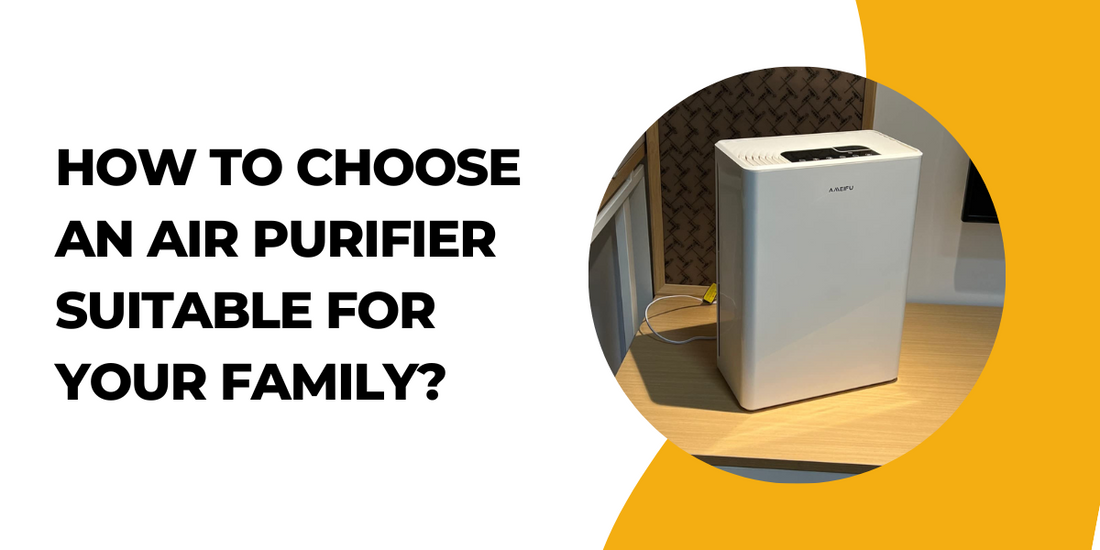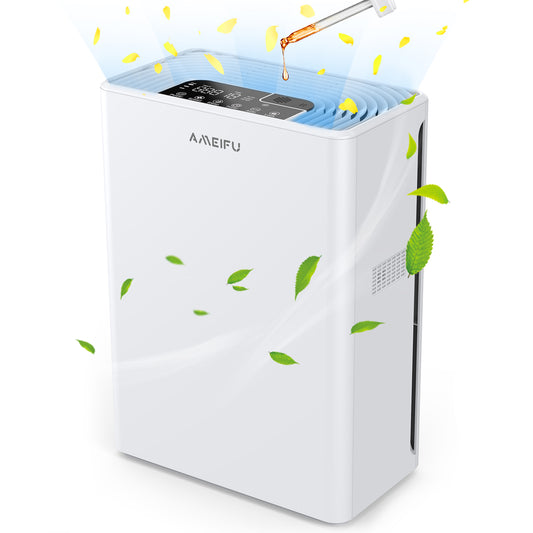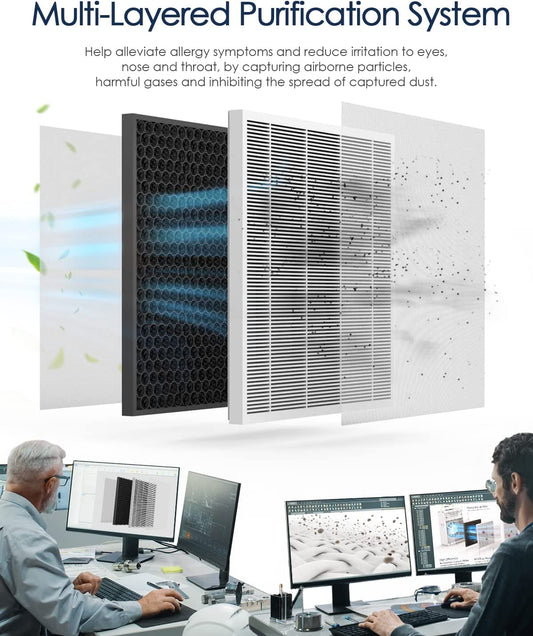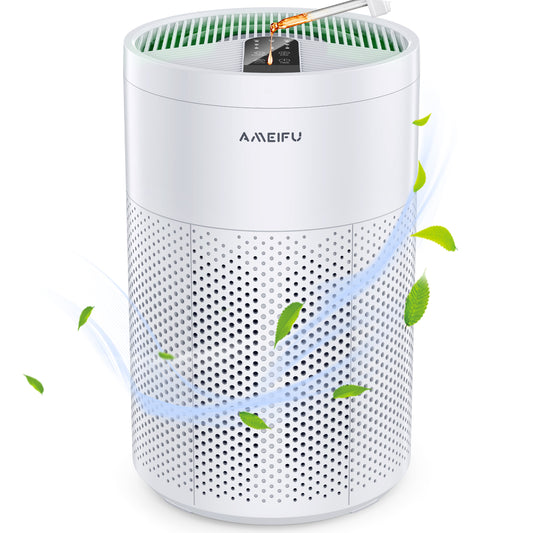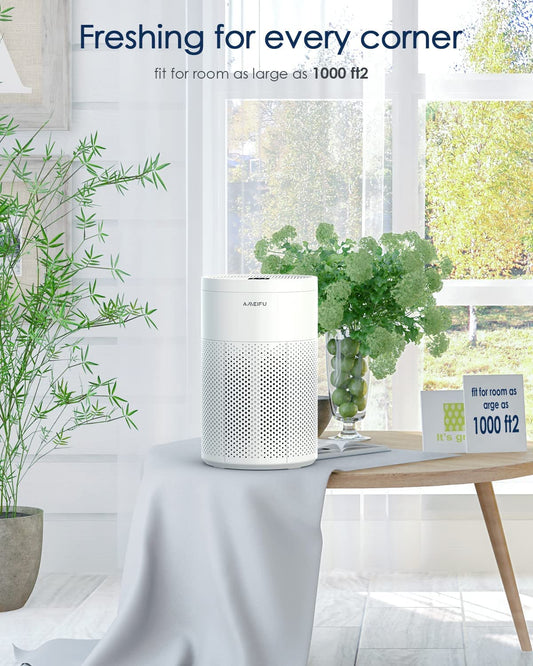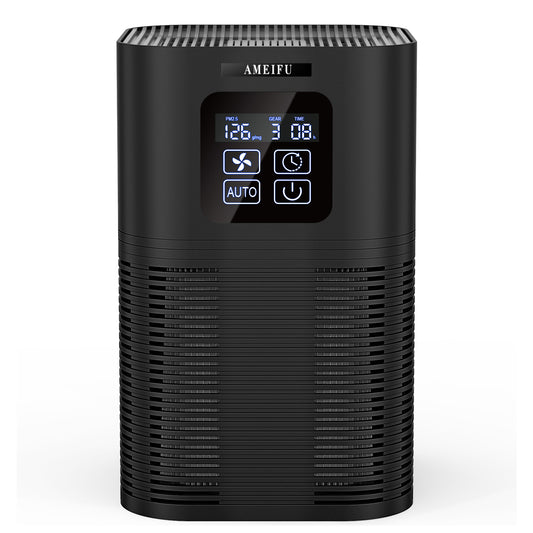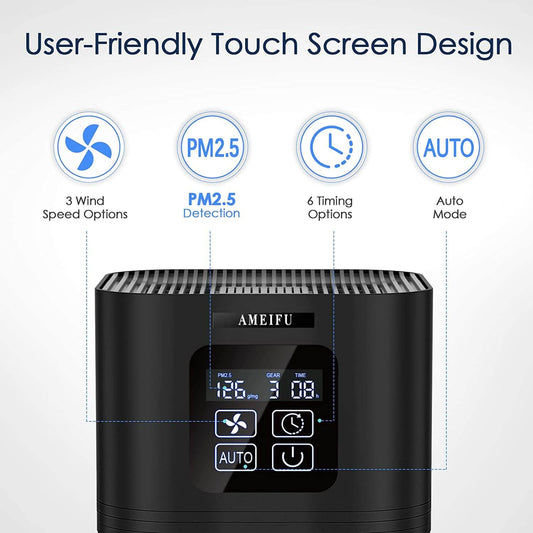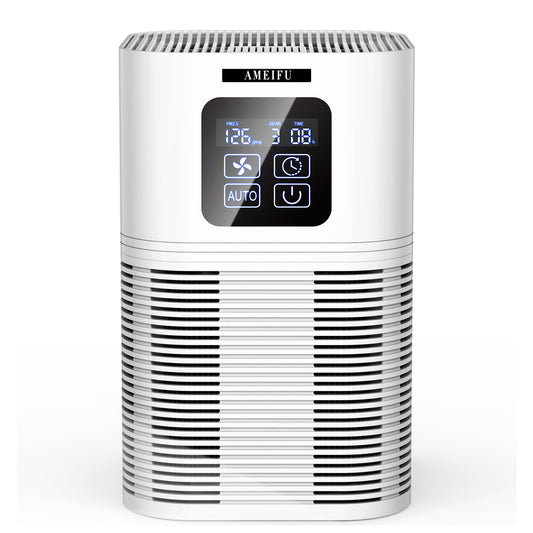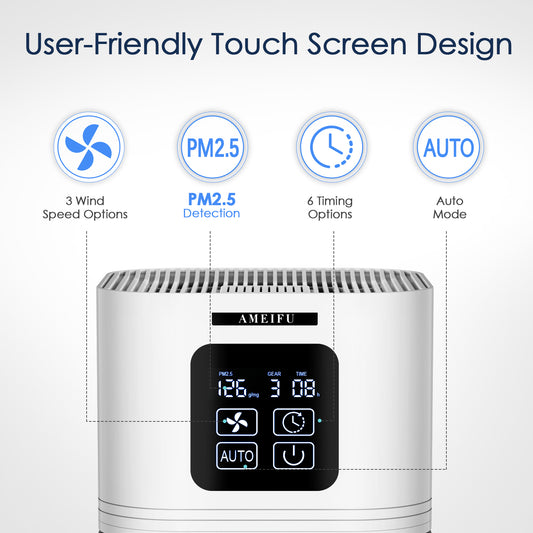Air pollution is a global issue that affects everyone, and indoor air pollution is no exception. Indoor air pollutants can come from a variety of sources, including dust, pollen, pet dander, mold spores, and even household chemicals. Poor indoor air quality can cause a wide range of health problems, including allergies, asthma, respiratory issues, and more. Air purifiers are a popular solution to indoor air pollution, but with so many different models on the market, it can be challenging to choose the right one for your family. In this essay, we will explore the key factors to consider when selecting an air purifier suitable for your family's needs.
HEPA Filters: The Key to Clean Air
High-Efficiency Particulate Air (HEPA) filters are considered the gold standard in air purification technology. These filters are designed to remove 99.97% of airborne particles that are 0.3 microns or larger, which includes most common indoor air pollutants. When selecting an air purifier, it's essential to choose one with a true HEPA filter, as not all filters marketed as "HEPA-like" or "HEPA-type" meet the same rigorous standards.
CADR Ratings: Measuring Purification Efficiency
Clean Air Delivery Rate (CADR) is a standardized metric that measures the efficiency of air purifiers. CADR ratings are based on three types of pollutants: smoke, pollen, and dust. The higher the CADR rating for a particular pollutant, the more effective the air purifier is at removing that pollutant from the air. When selecting an air purifier, it's important to choose one with CADR ratings that are appropriate for your room size and the types of pollutants you want to remove.
Room Size: Matching Purifier Size to Your Space
Air purifiers are designed to work in specific room sizes, and it's essential to choose a purifier that is appropriate for your space. A purifier that is too small for your room will be ineffective at cleaning the air, while a purifier that is too large for your space will use more energy than necessary. When selecting an air purifier, consider the size of the room it will be used in and choose a purifier with a recommended room size that matches your needs.
Noise Levels: Balancing Purification and Comfort
Air purifiers can be noisy, and it's important to consider noise levels when selecting a purifier. While some purifiers are designed to be whisper-quiet, others produce a loud, noticeable hum. When choosing an air purifier, consider how the noise levels will affect your comfort and lifestyle. If you plan to use the purifier in a bedroom or other quiet space, choose a model with low noise levels.
Filter Replacement: The Cost of Clean Air
Air purifiers require regular filter replacements to maintain their effectiveness. When selecting an air purifier, consider the cost and availability of replacement filters. Some models have filters that need to be replaced every few months, while others may only need to be replaced once a year. It's important to choose a purifier with replacement filters that are affordable and easy to find.
Additional Features: Extras for Added Comfort
Many air purifiers come with additional features that can improve your indoor air quality and overall comfort. Some models have automatic sensors that detect pollutants and adjust the purifier's settings accordingly. Others have built-in ionizers that can help remove particles from the air. When selecting an air purifier, consider the additional features that are important to you and your family.
Conclusion
Air purifiers are an effective solution for indoor air pollution, but selecting the right one for your family can be challenging. By considering factors such as HEPA filters, CADR ratings, room size, noise levels, filter replacement, and additional features, you can make an informed decision about which air purifier is suitable for your family's needs. Keep in mind that air purifiers are just one piece of the puzzle when it comes to improving indoor air quality. Regular cleaning, proper ventilation, and reducing the use of household chemicals can also help to reduce indoor air pollution.
Investing in an air purifier can have numerous benefits for your family's health and wellbeing. By selecting the right purifier for your space and needs, you can breathe easy knowing that you're taking steps to improve your indoor air quality.

